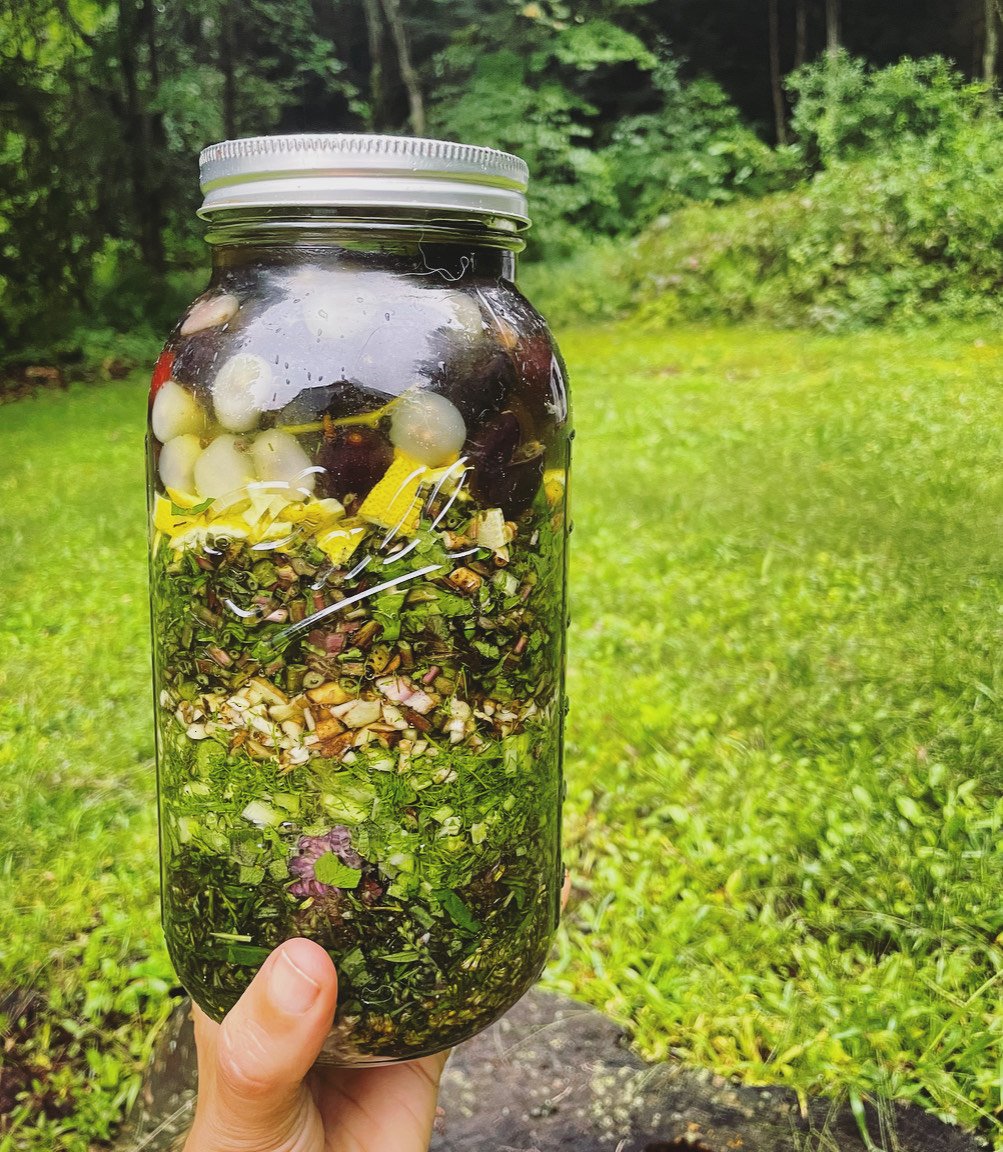
Instructions:
-
Crush the grapes to release their juices and put in a 1-quart jar
-
Chop the herbs well and add to the jar
-
Cover the contents of the jar approx 75% of the way with your alcohol of choice
-
Cover the remaining 25% of the contents with raw honey. It’s fine if it’s crystallized, as it will dissolve in a few days. And it’s ok if you have a layer of plant material poking out, exposed, on the surface of the herbs- as long as they’re coated in the alcohol-honey mixture it won’t mold. However, that exposed layer may turn brown from oxidation, which is normal and will not compromise the medicine.
NOTE: If you prefer to add your sweetener after straining, simply fill the jar with the alcohol so the herbs are covered. Then add honey or simple syrup, to taste, after straining
-
Let steep for at least one month (longer is fine), shaking daily or as often as possible, whispering your prayers and intention into the medicine while doing so
-
Strain and bottle into the fanciest bottle you have. May be stored at room temperature, indefinitely
Use:
These are most often enjoyed in cute little cordial glasses, in 2-3 tbsp-sized amounts, and sipped straight or they may be be poured straight over ice. They may also be made into cocktails/mixed drinks mixed with Prosecco, soda, or seltzer. Another lovely way they are used is in espresso. “Caffe Correto” in Italy is espresso with Grappa or liquors added. They may also be splashed into after-dinner espressos or, after the espresso is drank, a dash is sometimes added to the bottom of the cup to get any residual espresso-yum.
And of course they’re medicinal due to the bitter, aromatic, and stimulating nature of the herbs. These can be enjoyed before or after a meal to stoke the digestive fires and aid digestion. In addition to stimulating digestive juices and enzymes they help relax the body and mind. This relaxed state (known as “rest and digest” or the parasympathetic nervous system state) benefits all digestive processes, nutrient absorption, and nervous system health. You can read more about the wide-ranging benefits of the bitter flavor on this blog here.
In some European traditions of herbalism, sweetened herbal liquors are referred to as cordials. The word cordial means “warm and friendly,” with a more archaic definition of “pertaining to the heart.” The root comes from the Middle Latin word cordialis, which means “belonging to the heart,” from Latin root of cor and cord which means “heart.” I think of amaro as a type of cordial, best enjoyed with company, that gets us into our heart space and out of our heads. Beyond the more objective health benefits of the herbs themselves, incorporating cordials into your life will increase feelings of warmth, comfort, and well-being, especially when enjoyed with friends and loved ones after a delicious meal.
Enjoy!




